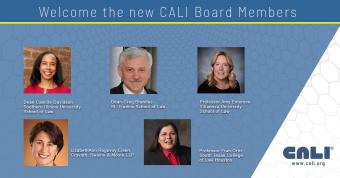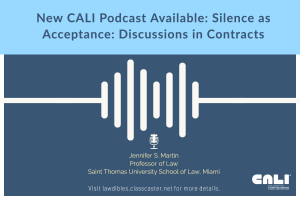Attend CALIcon21, online June 2-4, to unlock three intense days of expert-led sessions
|
10,000 law faculty have spent the past year teaching on one video platform or another. Many have had to manage their courses through some kind of website or LMS. They now have skills – however, reluctantly learned – in some aspects of computer-mediated instruction and educational video. This is a skill set – however nascent – that will be useful in the future. How can we build on this? Attend CALIcon21, online June 2-4, to unlock three intense days of expert-led sessions, proven case studies, and actionable tactics that you can apply in your classroom… all for just $50. Check out the speakers you’ll learn from next month... you’ll see established speakers along with fresh faces chosen for their exceptional knowledge and eagerness to share: and dozens more. Click to see the full line-up! |





 The topic of this podcast by Professor
The topic of this podcast by Professor 